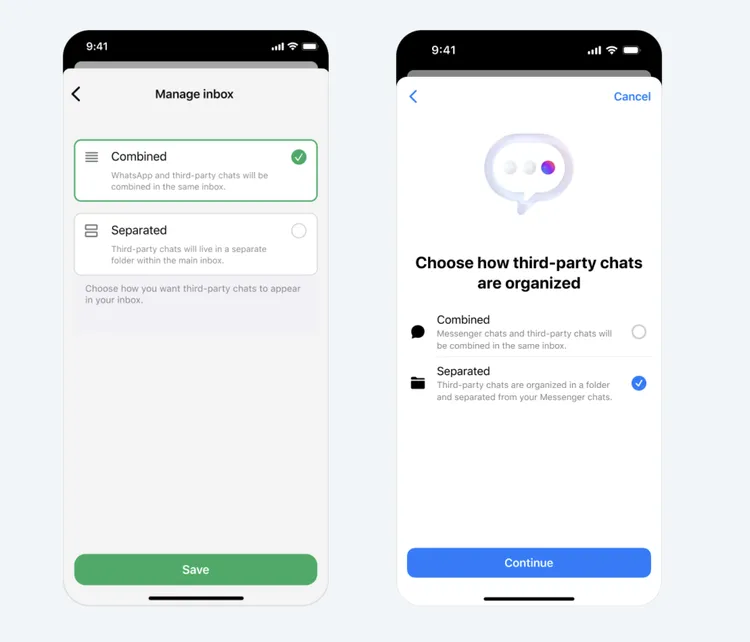Meta has officially revealed its plans to integrate third-party chats into WhatsApp and Messenger, a move aimed at providing more flexibility to users, especially in the European Union (EU). This update allows users to either merge chats from third-party apps into the same inbox as their WhatsApp and Messenger conversations or keep them separate, offering more control over how they manage their communications.
In addition to this, Meta is introducing enhanced notification features in both Messenger and WhatsApp. These notifications will inform users when they can link chats from newly supported third-party apps, providing a seamless experience. Meta emphasized that it has gone beyond the basic requirements for interoperable messaging set by the EU’s Digital Markets Act (DMA). The company plans to offer rich messaging features, such as message reactions, direct replies, typing indicators, and read receipts, which are expected to enhance the overall user experience.

Starting next year, Meta will add the option for users to create groups that include participants from third-party apps, making communication across platforms even easier. But Meta’s vision extends beyond messaging alone. The company has announced plans to support third-party video and voice calls by 2027, which could redefine how users engage across different apps.
Meta’s efforts to introduce third-party chat functionality are primarily focused on users in the EU, due to the company’s designation as a “digital gatekeeper” under the EU’s Digital Markets Act. As a gatekeeper, Meta is required to comply with new regulations, which demand that WhatsApp and Messenger become interoperable with other messaging apps, such as iMessage, Telegram, Google Messages, and Signal.

However, implementing these changes comes with technical challenges. One of the most significant hurdles Meta will face is ensuring privacy and security across different platforms. Third-party apps that wish to integrate with WhatsApp and Messenger will be required to use the same Signal Protocol, a highly secure encryption standard, to ensure that messages remain private. Meta has stated that it will provide access to the Signal Protocol upon request for any third-party app that meets the necessary privacy and security requirements.
This emphasis on privacy aligns with Meta’s broader commitment to ensuring that users’ messages remain secure, even in an environment where communication crosses multiple platforms. Despite the complexities involved, Meta’s initiative represents a major step toward creating a more unified and interoperable messaging ecosystem across the EU.
By enabling third-party messaging, Meta is not only complying with regulatory demands but also setting a new standard for how messaging apps can coexist, offering users more freedom and convenience in how they communicate. As the company continues to work on expanding these features, users can expect an even more interconnected and versatile experience across different messaging platforms.


Leave a Comment